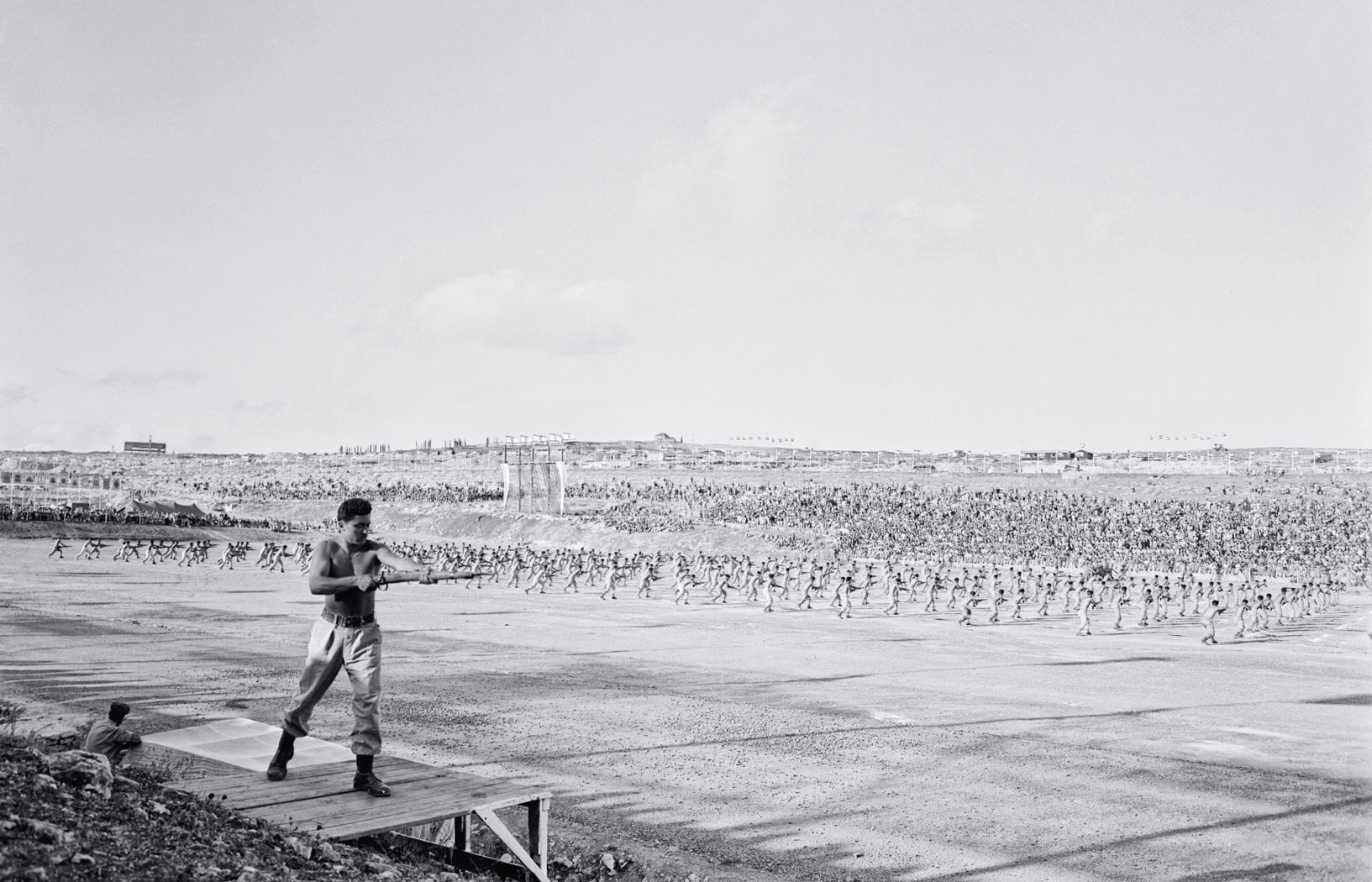Memory of the Warsaw Ghetto Uprising in Israel.
Memories Day. One of Israel’s most important public holidays is Yom Hashoa (Yom haZikkaron laShoa ve-laGevura, Holocaust and Heroic Remembrance Day). It is celebrated on the 27th day of the month of Nissan – seven days after the seventh day of Pesach and seven days before Yom ha-Zikkaron (a holiday honoring soldiers who fell in all Israel’s wars). This is – like almost everything in independent Israel – a settlement between religion and history. The date for the holiday was fixed by the Knesset (Israeli parliament) in 1951. At the time, rabbis argued that the day should be the 10th of the month of Tevet (anniversary of the beginning of the siege of Jerusalem in 586 BC), while representatives of secular circles believed the only date adequately reflecting the spirit of Remembrance Day, April 19 is the anniversary of the outbreak of the Warsaw Ghetto Uprising. In the end, the authorities chose a date that didn’t commemorate any particular event. (Although in 2023, Yom Hashoah falls on April 17th, right next to the date it’s also supposed to be observed).
The Holocaust in Israeli Politics of Remembrance. Even before 1948, David Ben-Gurion, one of the principal founders of the Jewish state and Israel’s first prime minister, used to say: “They don’t want to listen to us. By their death, they are sabotaging the Zionist dream.” During World War II, the Holocaust was seen as a humiliating defeat in Mandatory Palestine. In the socialist press there are comments blaming the victims for not defending themselves, for not fighting for their lives, or at least for the right to die with dignity. This attitude contrasts with the ethos of Sabra (a Palestinian-born Jewish pioneer) who never gives up. Reports of atrocities committed by the Germans throughout occupied Europe appeared in the Jewish press – often even on the front pages, but they never made headlines.

“Reader. Future teen idol. Falls down a lot. Amateur communicator. Incurable student.”


![Bogusław Wołoszański: “Achieving nuclear weapons would be the beginning of World War III” [WYWIAD]](https://storage.googleapis.com/bieszczady/rzeszow24/articles/image/877236c0-66fd-457a-9eb4-41792f9077ff)




